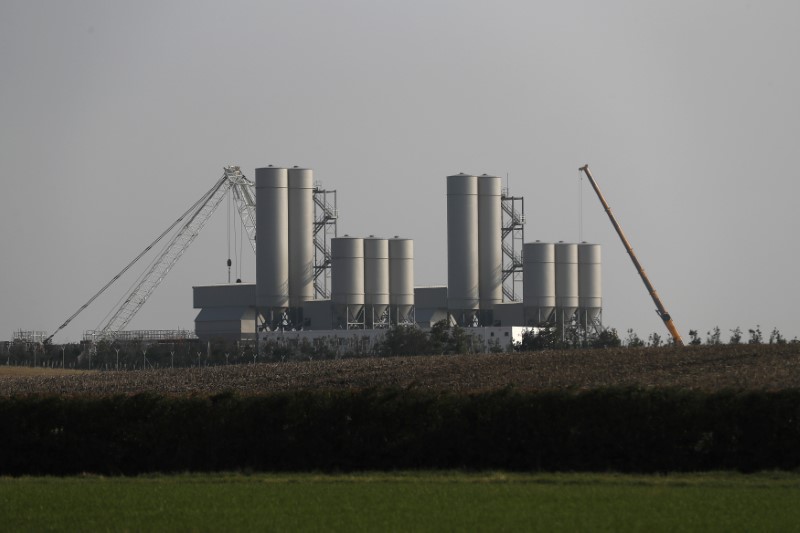LONDON (Reuters) - Britain's government failed to protect energy consumers when agreeing a deal to build the Hinkley C nuclear power station and should reevaluate the case for investing in more atomic plants, a UK parliamentary committee said on Wednesday.
The government is trying to reduce household energy prices and is under pressure from suppliers, who say policy costs are partly responsible for spiralling bills.
"Its blinkered determination to agree the Hinkley deal ... means that for years to come energy consumers will face costs running to many times the original estimate," said Meg Hiller, chair of the cross-party Public Accounts Committee, which published a report on the Hinkley deal on Wednesday.
Britain needs to invest in new capacity to replace aging coal and nuclear plants due to close in the 2020s, but large new plants, especially nuclear, have struggled to get off the ground due to high costs.
The government in 2013 agreed to give France's EDF (PA:EDF) a minimum price guarantee of 92.5 pounds per megawatt-hour, inflation linked, for 35 years for Hinkley C, the first nuclear plant to be built in Britain for 20 years.
Electricity payment top-ups, committed by the government and ultimately paid for by consumers through bills, could reach 30 billion pounds, five times more than originally expected, Britain's National Audit Office said in June.
"(Britain's energy) department did not attempt to renegotiate the deal in light of the weakening case because it assumed the project's investors would not have accepted a lower return," the report said.
Under the contract, the government will pay the difference between the wholesale electricity price and the minimum it has promised - so-called top-up payments.
The committee said the government should reevaluate and publish its strategic case for supporting more nuclear plants before agreeing any more deals.
Japanese conglomerate Hitachi Ltd's Horizon unit, Toshiba’s Nugen and China General Nuclear Power Corp plan to build nuclear plants in Britain but will need support from the government.
Hinkley C, which had promised power to cook Britons' Christmas dinners in 2017, is unlikely to be completed until 2026 at the earliest after a series of delays while EDF secured further investment from the French government and Chinese partners.

The committee said the government should publish a "Plan B" in case the project, which is expected to generate 7 percent of the country's electricity, is further delayed.